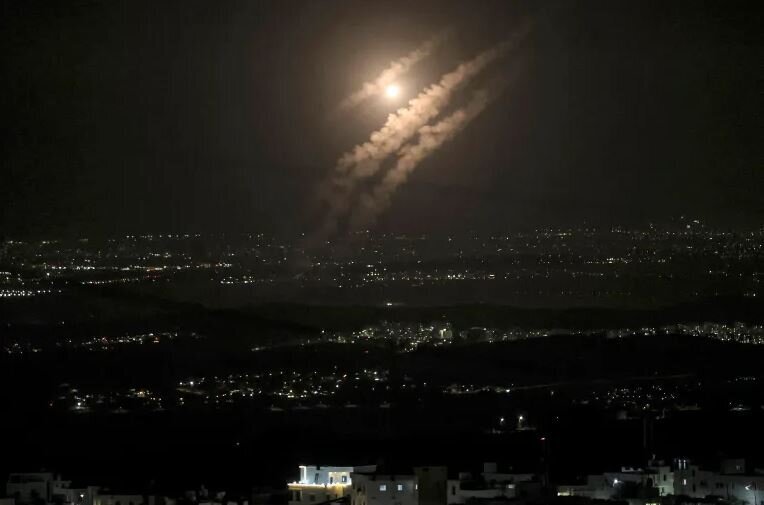Israel's Achilles' heel: strategic vulnerabilities exploitable by Iran

MADRID - Following the success of Operation "True Promise II," a possible response from the Zionist regime is anticipated.
Should this occur, various military authorities of the Islamic Republic have warned that "the response will be significantly more forceful than the operation itself."
In this context, Iranian authorities, along with media outlets and analysts, have recently pointed out potential reactions to an Israeli attack on Iran. They all have focused on Israel's small size in comparison to Iran, its limited strategic depth (defined as the distance between front lines and key industrial areas and population centers), and the vulnerability of its critical infrastructure.
The colonial state of Israel has a maximum width of only 137 km and merely 14 km at its narrowest point. This situation causes population centers, industry, and military infrastructure to be heavily concentrated and located close to its borders. This lack of strategic depth has led Israel, since the era of Ben Gurion (the first prime minister of the Zionist colonial entity), to adopt an offensive and preventive approach in its conflicts, a stance that aligns with its colonial vision of expansion and conquest.
The situation took a dramatic turn after the Six-Day War in 1967. The conflict between Israel and a coalition composed of Egypt, Syria, Jordan, Iraq, and Saudi Arabia resulted in a decisive victory for the Israeli state. Anticipating a planned Egyptian invasion, Israel launched a preventive attack that destroyed almost all military air assets of Egypt and Syria, thereby achieving air superiority and concluding the war in just six days, much to the dismay of the Arabs. As a result of this conflict, Israel occupied the West Bank, the Gaza Strip, the Sinai Peninsula, and the Golan Heights. Of these territories, only the Sinai Peninsula was later returned to Egypt, while the others remain occupied to this day. The Zionist state considers that these occupied areas provide it with some strategic depth in the event of an attack.
Israel is fully aware that there are two types of strategic depth: internal and external. The external lies beyond a country's borders; in this case, in the sea. The strategic depth offered by the Mediterranean will play an increasingly important role in Israel's defense. For this reason, the colonial state has intensified its efforts to strengthen its maritime strategic depth.
In recent years, significant hydrocarbon reserves have been discovered in Israel's territorial waters. Over the last decade, its gas reserves have increased by more than 40%. Among the most notable fields are Tamar, Leviathan, and Katlan. Thus, Israel seeks to expand its military presence in the Mediterranean to ensure a strategic depth that, although enhanced through colonial expansion, remains insufficient from a defensive standpoint.
From a military standpoint, a country with greater strategic depth is considered to have a considerable advantage compared to one with less space. Strategic depth is a geographical factor that, on one hand, enhances a country’s defensive capability and, on the other, imposes significant challenges on the aggressor. It strengthens the natural ability of a defender to absorb a military aggression while simultaneously burdening the aggressor with the need to maintain extensive and sustainable logistics. In this regard, the Islamic Republic possesses significant strategic depth.
Another of Israel's weaknesses is, as mentioned, the vulnerability of its critical infrastructure, which includes oil and gas fields, power plants, refineries, desalination plants, and the Dimona nuclear reactor. Therefore, it can be asserted that if Israel were to decide to attack Iran, the Iranian response would aim to paralyze the entire infrastructure of the colonial entity, focusing on its economy.
It is worth noting that oil and gas account for approximately 39% and 42%, respectively, of Israel's energy, with more than 80% of its total energy coming from a few key facilities. This concentration makes the regime vulnerable to military attacks. In 2023, Israel imported 225,000 barrels of oil per day, 60% of which came from Kazakhstan and Azerbaijan. This oil is processed in two refineries: Haifa and Ashdod.
As noted by the newspaper Farhikhtegan Daily, "Israel's gas infrastructure is so vulnerable that the destruction of a single gas field would halt its exports to Egypt and Jordan. If both fields were destroyed, 42% of Israel's total energy supply would be eliminated."
From a strategic-military perspective, there are several Israeli targets that Iran could attack, each capable of causing significant economic, energy, military, and material losses, according to a recent infographic published by Hamshahri newspaper. In addition to the aforementioned ports of Haifa and Ashdod, other strategic targets that Iran could strike in the event of conflict with Israel include:
- Rafael: Located in Haifa, it is the primary assembly point for Israel's nuclear weapons.
- Karish Oil Field: The destruction of the Karish facilities would severely disrupt Israel's long-term plans, especially if Resistance groups manage to prevent reconstruction.
- Dimona Nuclear Reactor: This is the only site for plutonium production in Israel. Its destruction could generate a significant crisis for settlements in the central and southern parts of the country.
- Ashkelon Port: Expanded to alleviate pressure on Haifa, Ashkelon facilitates the transfer of oil from the Persian Gulf and houses multiple oil storage tanks.
- Tirosh Facilities: This site stores strategic nuclear weapons. The destruction of Tirosh would eliminate key assets and pose serious risks to Israel's security.
- Sdot Micha Air Base: It houses Jericho ballistic missiles, equipped with nuclear warheads.
- Yodfat: Another nuclear weapons assembly site that could also be a target.
Lastly, it is important to mention Tel Aviv, the most populous city in Israel and its economic capital. An attack in this area would not only have a significant economic impact but would also generate immense social pressure.
All of the above indicates that the Islamic Republic is prepared for any type of scenario and possesses a range of military resources that allow it to have confidence in its potential responses to an Israeli aggression.
